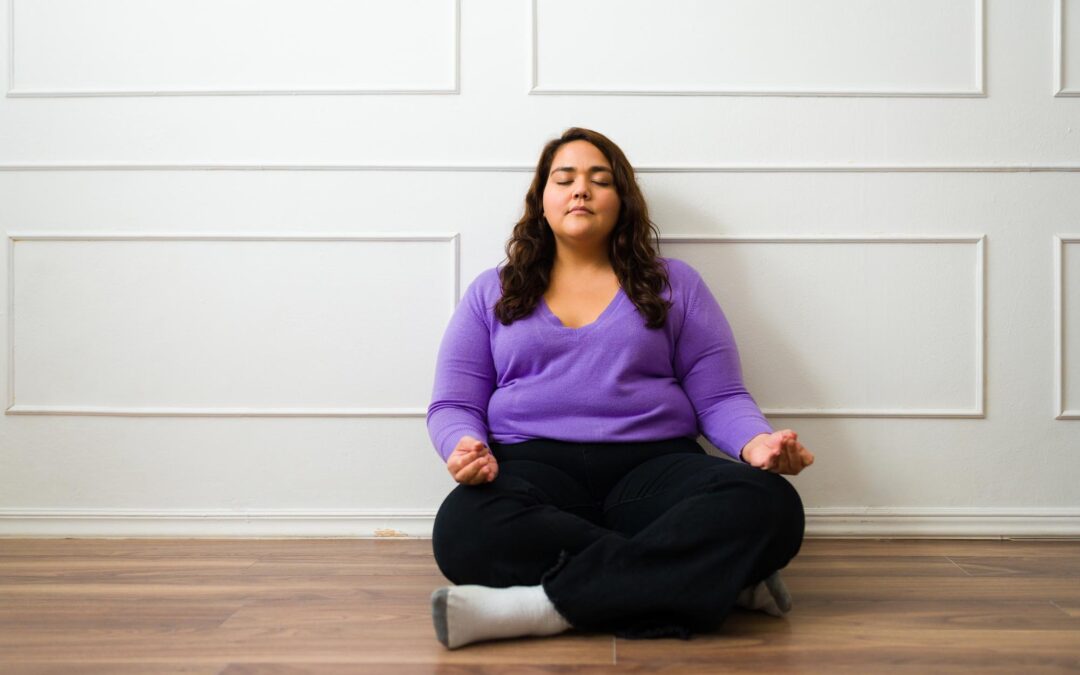Introduction
Mental health awareness has skyrocketed in recent years, pushing self-care from a luxury to an essential practice. The statistics are clear: 1 in 5 adults experience mental health challenges every year, highlighting the critical need for proactive wellness strategies.
Your mental well-being directly impacts every aspect of life – from work performance to relationships. Research shows that individuals who prioritize self-care report:
- Higher levels of life satisfaction
- Reduced anxiety and stress
- Improved physical health
- Better work-life balance
At LightWork Therapy and Recovery, we’ve seen countless women transform their lives through dedicated self-care practices. Our Massachusetts-based treatment center specializes in providing women with the tools and support needed to build sustainable self-care routines.
The journey to mental wellness begins with a simple yet powerful choice: deciding to prioritize yourself. As we face the unique challenges of 2025, understanding and implementing effective self-care strategies isn’t just helpful – it’s crucial for your survival and growth. If you or someone you know is struggling, it’s important to recognize when to seek help for mental health issues.
Understanding Self-Care
Self-care encompasses deliberate actions you take to maintain your physical, emotional, mental, and spiritual health. It’s a personalized practice that goes beyond basic survival needs, focusing on activities that nurture your well-being and personal growth.
The Dimensions of Self-Care
The dimensions of self-care include:
- Emotional: Managing stress, processing feelings, maintaining boundaries
- Physical: Exercise, nutrition, sleep, medical care
- Social: Building relationships, community engagement, support systems
- Spiritual: Meditation, religious practices, connection with nature
The Bio-Psycho-Social Model
The bio-psycho-social model illustrates how these dimensions interconnect. Your biological health affects your psychological state, which influences your social interactions – creating a continuous cycle of impact. This understanding drives the need for a holistic approach to self-care.
A Holistic Self-Care Practice
A holistic self-care practice might look like:
- Starting your day with meditation (spiritual)
- Taking a walk with friends (physical + social)
- Setting healthy boundaries at work (emotional)
- Joining a community group (social + emotional)
This integrated approach recognizes that true well-being emerges from attending to all aspects of your life. When you prioritize psychological self-care alongside physical health, you create a foundation for lasting resilience and vitality. In fact, there are neurological benefits of self-care that further emphasize its importance.
Shifting Self-Care Needs
Your self-care needs will shift based on life circumstances, stress levels, and available resources. The key lies in developing awareness of these needs and responding with appropriate care strategies. A useful strategy could be creating a personalized self-care routine, which can help you effectively meet your changing self-care needs.
Why Prioritizing Self-Care Matters
Self-care isn’t a luxury—it’s a necessity for maintaining optimal mental and physical health. Research shows that when you prioritize self-care it directly contributes to increased happiness levels and enhanced productivity in both personal and professional spheres.
The benefits of prioritizing self-care include:
- Improved Mental Clarity: Regular self-care activities help reduce mental fog and enhance decision-making abilities
- Higher Energy Levels: Taking care of your needs leads to sustained energy throughout the day
- Better Relationships: When you’re well-cared for, you’re better equipped to care for others
- Enhanced Creativity: A refreshed mind naturally generates innovative ideas and solutions
Self-care serves as a powerful shield against burnout—a state of physical, emotional, and mental exhaustion. By implementing regular self-care practices, you create natural breaks in your routine that prevent stress from accumulating to dangerous levels.
Your emotional intelligence grows through consistent self-care. As you become more attuned to your needs, you develop stronger self-awareness and better emotional regulation skills. This heightened emotional intelligence builds resilience, enabling you to bounce back from challenges with greater ease.
Studies indicate that individuals who maintain regular self-care routines demonstrate:
- 40% lower stress levels
- 35% increase in workplace productivity
- 45% improvement in relationship satisfaction
These statistics highlight the tangible impact of making yourself a priority. At LightWork Therapy and Recovery, we’ve observed that clients who embrace self-care as part of their daily routine show significantly faster progress in their mental health journey.
Self-Care Strategies for Mental Health
Mental health self-care requires a strategic approach tailored to your unique needs and circumstances. Research shows that implementing specific self-care practices can significantly impact your psychological well-being and resilience.
Here are proven strategies to enhance your mental health through intentional self-care:
1. Create Daily Rituals
- Set aside dedicated time each morning for meditation or deep breathing
- Practice gratitude journaling before bed
- Take regular breaks during work hours to reset your mind
2. Establish Boundaries
- Learn to say “no” to non-essential commitments
- Set clear work-life boundaries
- Limit exposure to negative social media content
3. Engage Professional Support
- Schedule regular therapy sessions with licensed professionals, such as those offered by LightWork Therapy and Recovery, which supports women in developing sustainable self-care routines.
- Consider online therapy platforms like BetterHelp for flexible access
- Join support groups specific to your challenges
4. Practice Mindful Activities
- Try guided meditation apps
- Engage in mindful walking
- Use breathing exercises during stressful moments
5. Implement Emotional Check-ins
- Keep a mood tracker
- Identify emotional triggers
- Document coping strategies that work for you
Your emotional well-being benefits from consistent attention and care. Studies indicate that people who maintain regular emotional self-care practices experience:
- Reduced anxiety levels
- Better stress management
- Improved emotional regulation
- Enhanced self-awareness
- Stronger interpersonal relationships
The key lies in selecting strategies that resonate with your lifestyle and personal preferences. Start small – even 5-10 minutes of dedicated self-care can make a difference. As you build confidence and consistency, you can expand your practice to include more comprehensive approaches.
Remember that self-care isn’t selfish – it’s essential for maintaining your mental health and being present for others.
Physical Self-Care
Your physical well-being has a direct impact on your mental health. By taking care of your body, you lay the groundwork for emotional strength and psychological wellness.
Exercise Benefits for Mental Health:
- Regular physical activity releases endorphins, natural mood elevators
- 30 minutes of daily movement reduces anxiety and depression symptoms
- Strength training builds confidence and self-esteem
- Outdoor activities provide vitamin D and nature connection
Nutrition’s Role in Mental Wellness:
- Complex carbohydrates stabilize mood by regulating blood sugar
- Omega-3 fatty acids support brain function
- Hydration affects cognitive performance and emotional balance
Sleep Hygiene Practices:
- Set consistent sleep-wake times
- Create a calming bedtime routine
- Keep your bedroom cool, dark, and quiet
- Limit screen time 2 hours before bed
- Use white noise or meditation apps for better sleep quality
Your physical self-care routine doesn’t need to be complex. Small, consistent actions like taking a daily walk, preparing nutritious meals, and maintaining good sleep habits create powerful positive effects on your mental health journey.
Social Self-Care
Social connections are an essential part of taking care of your mental health. Prioritizing self-care includes nurturing meaningful relationships that can significantly improve your well-being. Studies have shown that having strong social ties can lower stress levels by as much as 50% and greatly reduce feelings of loneliness.
Building a Supportive Community
Here are some ways you can start building a supportive community:
- Stay in touch: Make it a habit to regularly check in with your friends and family through calls, texts, or in-person meetings.
- Join support groups: Look for support groups that are specific to your experiences or challenges.
- Get involved in the community: Participate in community activities that align with your interests.
- Volunteer: Engage in volunteer work to create meaningful connections with others.
The Importance of Social Support for Caregivers
For caregivers, social support is especially important. Here are some ways you can seek support as a caregiver:
- Connect with other caregivers through local support groups.
- Schedule regular coffee dates with understanding friends.
- Join online communities focused on caregiver experiences.
- Participate in group therapy sessions at centers like LightWork Therapy.
Setting Healthy Social Boundaries
Setting healthy boundaries in your relationships is crucial for maintaining them. Here are some tips on how to do this:
- Learn to say “no” when you need to.
- Communicate your needs clearly to others.
- Prioritize spending quality time with people who uplift you.
Remember, strong social connections can help protect you from stress and provide support during difficult times.
Spiritual Self-Care
Spiritual self-care goes beyond religious beliefs; it establishes a deep connection with your inner self and the world around you. This crucial aspect of well-being assists you in discovering meaning, purpose, and tranquility in everyday life.
Key Spiritual Practices for Mental Wellness:
- Meditation and mindfulness exercises: These practices help quiet the constant noise in your mind, promoting mental clarity and peace.
- Regular nature walks: Spending time in nature fosters a sense of connection with the environment, reducing stress and enhancing well-being.
- Practicing gratitude: Reflecting on things you’re grateful for each day cultivates a positive mindset and appreciation for life.
- Creating sacred spaces at home: Designating areas in your living space for quiet contemplation or spiritual activities can enhance your practice.
- Engaging in meaningful rituals: Participating in rituals that align with your values brings a sense of purpose and fulfillment.
Your spiritual journey may involve exploring various philosophical teachings, joining meditation groups, or developing personal mantras. These practices create moments of stillness, allowing you to process emotions and gain clarity.
Many individuals find peace through activities such as:
- Yoga and breathing exercises
- Reading inspirational literature
- Participating in community service
- Spending time in quiet reflection
- Exploring creative expressions through art or music
Incorporating spiritual self-care into your daily routine strengthens your emotional resilience and provides a stable foundation during difficult times. This practice helps you maintain perspective and discover inner balance amidst life’s challenges.
Implementing a Self-Care Plan
Creating a personalized self-care plan starts with an honest assessment of your current needs and lifestyle. Your plan should reflect your unique circumstances, preferences, and available resources.
Here’s a practical approach to building your self-care routine:
1. Assess Your Current State
- Rate your satisfaction in different life areas (physical, emotional, social, spiritual)
- Identify areas needing immediate attention
- List activities that make you feel recharged
2. Set SMART Goals
- Specific: “I will meditate for 10 minutes each morning”
- Measurable: Track your progress through apps or journals
- Achievable: Start with small, manageable changes
- Relevant: Choose activities aligned with your values
- Time-bound: Set realistic timeframes for each goal
3. Schedule and Track
- Block dedicated time slots for self-care activities
- Use habit-tracking apps or journals
- Document how different activities affect your mood
- Adjust your plan based on what works best
A successful self-care plan remains flexible. Your needs will change – what works today might need adjustment next month. Regular check-ins help you stay aligned with your goals while maintaining realistic expectations.
At LightWork Therapy and Recovery, we help women develop sustainable self-care practices that evolve with their changing needs. Your self-care journey is unique – embrace the process of discovering what works best for you.
Overcoming Barriers to Prioritize Self-Care
Self-care barriers can feel like insurmountable walls, blocking your path to better health and well-being. Time constraints rank as the most common obstacle, with many women struggling to balance work, family, and personal needs. Guilt emerges as another significant barrier – the feeling that taking time for yourself means neglecting others.
Common Self-Care Obstacles:
- Packed schedules leaving no room for personal time
- Financial limitations restricting access to wellness resources
- Caregiver responsibilities creating constant demands
- Perfectionist tendencies leading to all-or-nothing thinking
- Social pressure to maintain a “superwoman” image
Practical Solutions to Break Through Barriers:
- Start with 5-minute self-care activities during your daily routine
- Schedule self-care like any other important appointment
- Replace guilt with self-compassion through positive self-talk
- Create boundaries by learning to say “no” to non-essential commitments
- Find cost-effective alternatives (free meditation apps, home workouts)
For women managing chronic conditions, self-care becomes even more crucial in preventing burnout risk. Breaking down self-care into smaller, manageable tasks makes it less overwhelming. Remember: investing time in yourself isn’t selfish – it’s essential for sustaining your ability to care for others.
Consider delegating tasks where possible and involving family members in your self-care journey. This shared approach can transform self-care from a solitary activity into a family value, creating a supportive environment for everyone’s well-being.
Conclusion
Your journey to prioritize self-care in 2025 starts with a single step. Self-care isn’t a luxury – it’s an essential investment in your mental health and well-being. Each small action you take today builds the foundation for a stronger, more resilient tomorrow.
Making self-care your top priority this year means:
- Treating yourself with the same compassion you show others
- Recognizing that self-care enhances your ability to care for those around you
- Understanding that your mental health deserves dedicated time and attention
You don’t have to navigate this journey alone. LightWork Therapy and Recovery specializes in supporting women through their mental health challenges. Our team of experienced professionals provides personalized guidance to help you develop sustainable self-care practices that fit your unique needs.
Ready to prioritize yourself? Contact LightWork Therapy and Recovery to begin your path to improved mental well-being. Your future self will thank you for taking this important step today.





